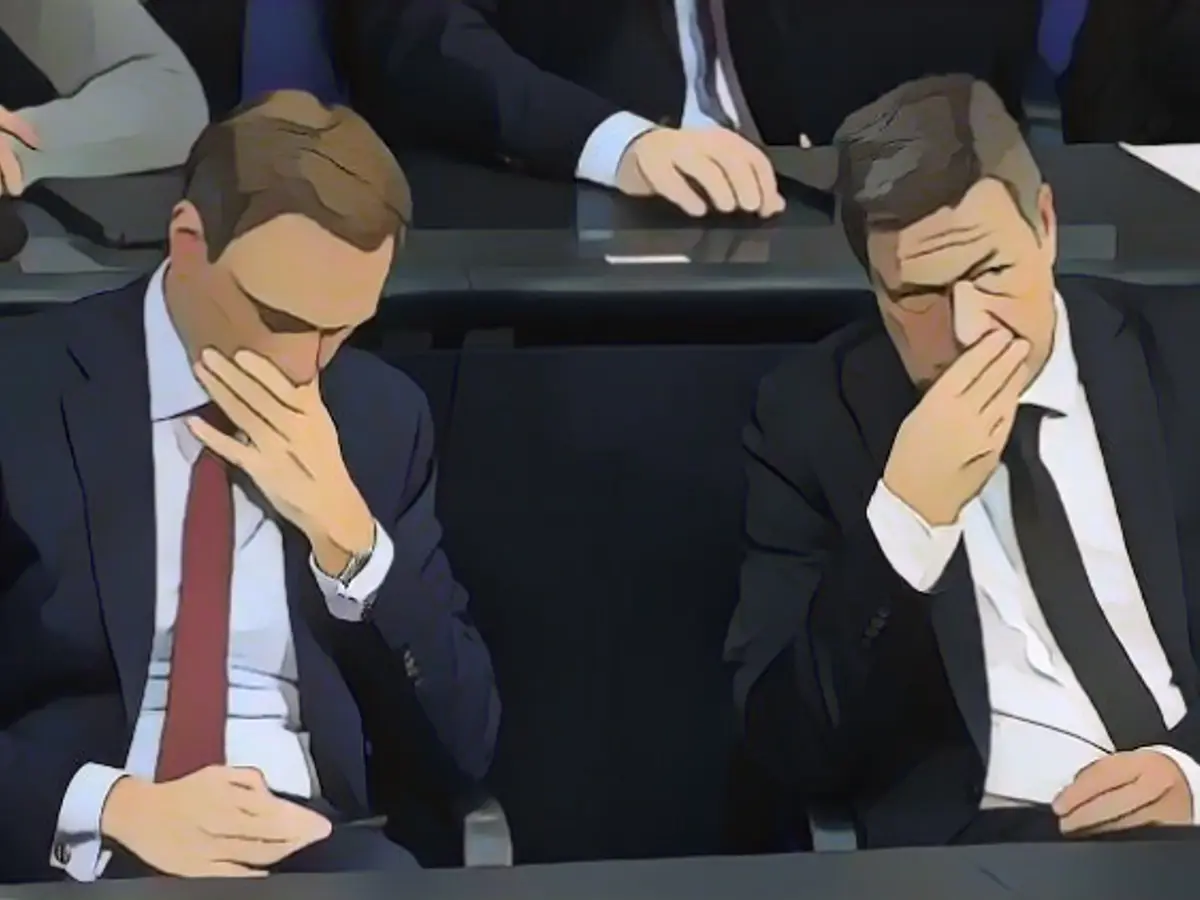Climate money is becoming increasingly unlikely
The coalition government actually wanted to relieve the burden on people in the country with a climate money - to make heating and refueling more and more expensive. But the agreement in the coalition agreement is nowhere to be seen. No wonder in view of tight budgets. Will it even happen?
It is becoming increasingly uncertain whether the German government will actually introduce climate money to relieve the burden of rising fuel and heating costs. Although it was agreed in the coalition agreement, it is unclear whether the federal government can even afford it in view of the tight budgets. The Ministry of Finance is now saying that the implementation is on schedule, but whether and how it will actually happen is questionable.
State Secretary Katja Hessel said that it had been agreed that the payment channel would be created during this legislative period. "The mechanism will be available by 2025 as planned." However, this does not mean that climate money will be paid out at that time. Politically, the design of the climate money has not yet been decided, said Hessel.
In purely technical terms, the federal government has the problem that it has not yet been able to transfer money directly to citizens' accounts. To do this, the federal government has to link the tax identification number, which everyone receives at birth, to an account number. In addition, only a certain number of transfers are possible per day.
At least progress is now being made on the first problem: "It is expected that a corresponding IBAN will be stored with the tax identification number of all citizens who are willing to do so by the end of 2024," according to the Ministry of Finance.
Money earmarked for climate protection and chip factories
Hessel suggested a reform of the funding policy. "At the moment, all income from the CO2 price is earmarked for climate protection measures or subsidies such as the promotion of chip factories," she said. If we want to pay out climate money, the funding policy must be fundamentally changed.
SPD General Secretary Kevin Kühnert sees a hidden message in such statements. If one consequence of the Federal Constitutional Court's budget ruling for the FDP is that there will be no climate money, "then it must say so openly", he recently warned in an interview with the Stuttgarter Zeitung and Stuttgarter Nachrichten newspapers.
In the end, the climate money will also be a question of available funds. Lower Saxony's Minister President Stephan Weil from the SPD told Die Welt: "I don't see how it could be financed under the current conditions." However, it is more necessary than ever. Matthias Miersch, deputy leader of the SPD parliamentary group, also believes that the budget ruling by the Federal Constitutional Court has severely restricted the scope for action: "The revenue from the CO2 price must first replace the funds now lacking for funding programmes and other measures for climate protection and the modernization of the economy," he told Redaktionsnetzwerk Deutschland.
The CO2 price for all fossil fuels such as heating oil, natural gas, petrol and diesel has been in place in Germany since 2021, making the consumption of these raw materials more expensive, which is intended to contribute to climate protection. The coalition recently agreed in the struggle over the federal budget that the CO2 price should increase slightly more than previously planned as of January 1.
Economists: Promises must be kept
The economist Veronika Grimm is calling for the climate money to be introduced before the next general election. "The climate money should have been established from the outset - before the increase in CO2 pricing," Grimm told the Düsseldorf newspaper Rheinische Post. "Then it would be crystal clear that the increasing CO2 pricing is not a tax increase, but simply a steering instrument." The German government should "absolutely keep the promise of the climate money, even if the climate money is now introduced well after the CO2 pricing", Grimm continued.
Most recently, Economics Minister Robert Habeck from the Green Party argued that citizens would already be relieved because the state would pay the EEG levy on the electricity price. Almost all of the revenue from the CO2 price would thus flow back to the people.
In the opinion of consumer advocates, however, Habeck's calculation does not add up. The total income from the CO2 price is significantly higher than the relief from the EEG levy, argues the Federation of German Consumer Organizations (vzbv). In mathematical terms, every citizen would therefore be entitled to climate money of 139 euros for the past three years. A family of four would have to receive 556 euros. Given Germany's current population, the federal government would have to spend around 11.76 billion euros. However, budget politicians argue that there is no scope for this in next year's budget.
Read also:
- Year of climate records: extreme is the new normal
- Precautionary arrests show Islamist terror threat
- UN vote urges Israel to ceasefire
- SPD rules out budget resolution before the end of the year
Despite the Ministry of Finance's claim that the implementation of climate money is on schedule, the design and availability of the funds remain unclear. Furthermore, the lack of a direct transfer system from the federal government to citizens' accounts presents a technical challenge.
In light of the tight budgets and the current funding policy, where all income from the CO2 price is earmarked for climate protection measures and subsidies, it seems questionable whether climate money will be introduced as promised.
Source: www.ntv.de








